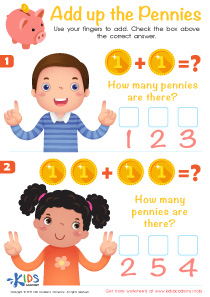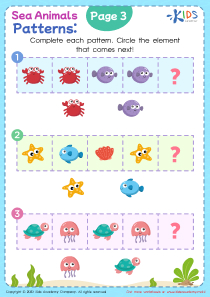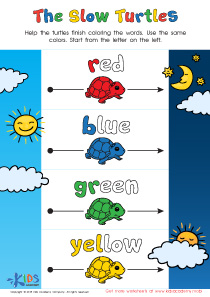Basic Math Skills Easy Preschool Subtraction Worksheets
4 filtered results
-
From - To
Introduce your preschooler to the world of mathematics with our Basic Math Skills Easy Preschool Subtraction Worksheets! Designed to make learning subtraction fun and engaging, these worksheets provide a variety of activities that help young learners grasp basic math concepts. Each worksheet features bright images and simple problems, tailored to develop critical thinking and problem-solving skills in a gentle, stress-free manner. Ideal for parents and teachers, our collection supports early math education at home or in the classroom, paving the way for future academic success. Download our resources today to spark your child's journey into the exciting world of numbers!
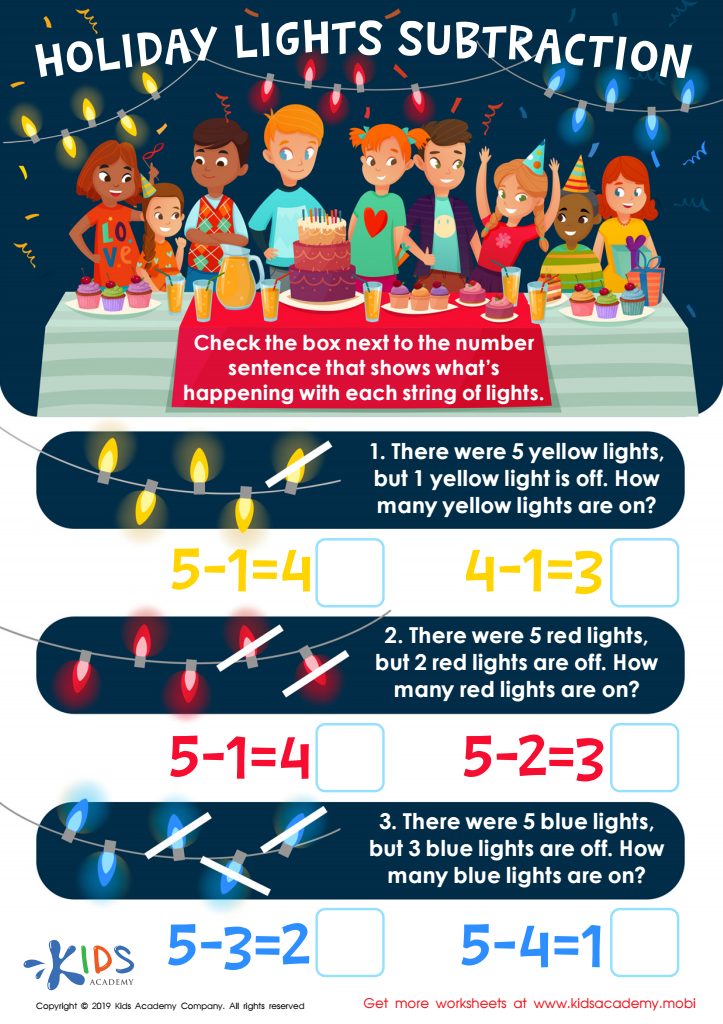

Holiday Lights Subtraction Worksheet
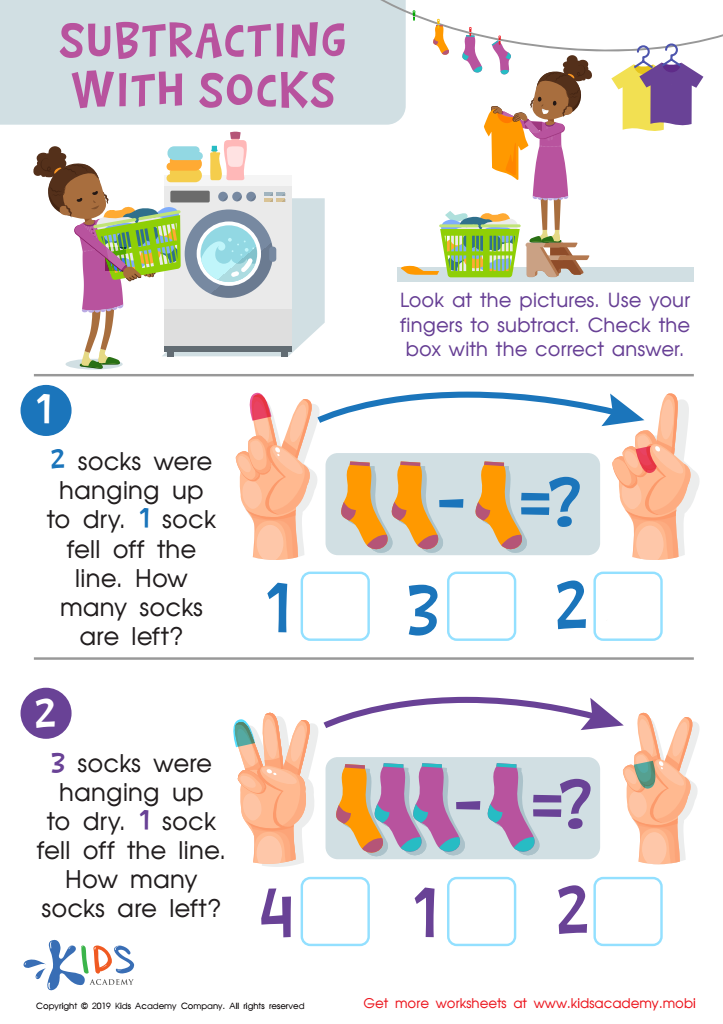

Subtracting Socks Worksheet
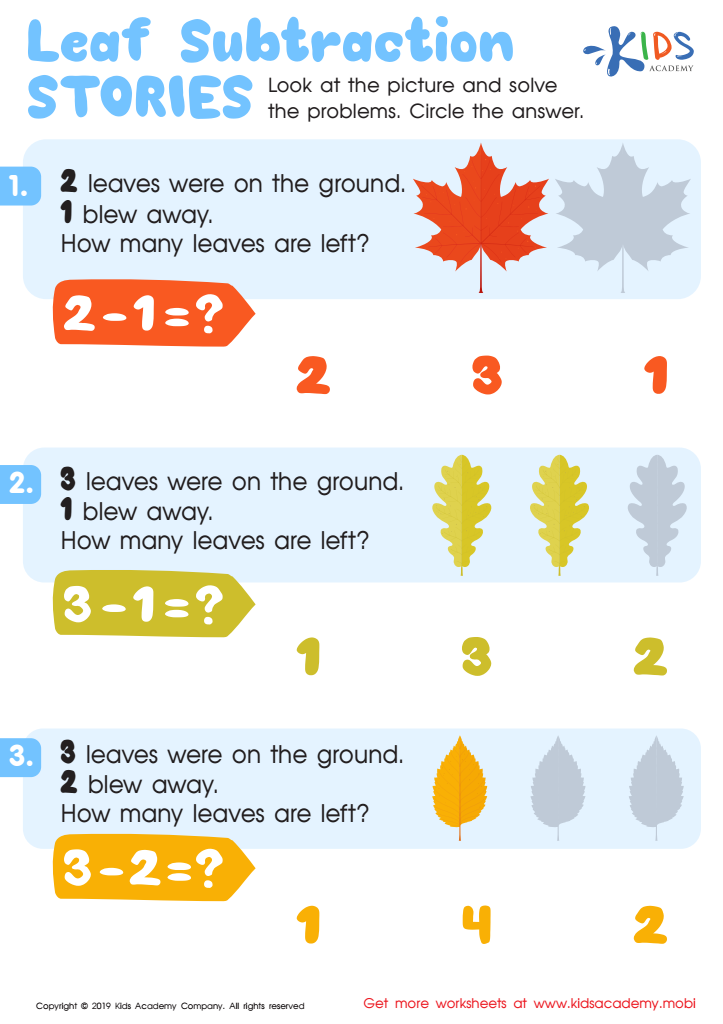

Leaf Subtraction Stories Worksheet
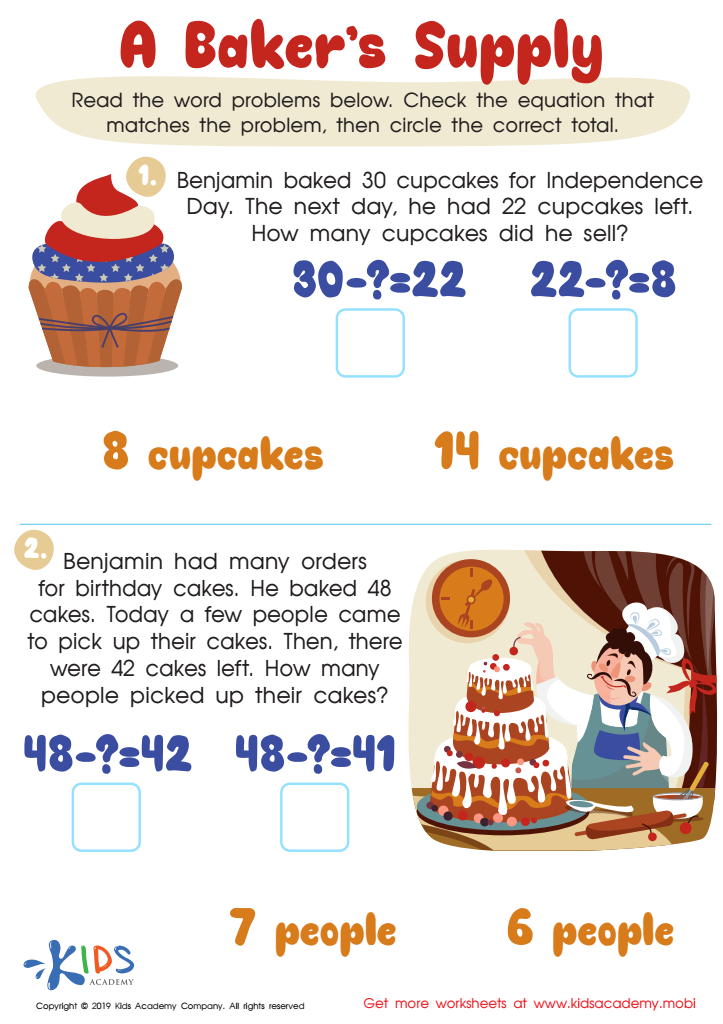

A Baker's Supply Worksheet
Basic math skills, particularly subtraction, are foundational for young learners and have far-reaching implications for their future academic and everyday life success. Parents and teachers should care about easy preschool subtraction because it helps children develop critical thinking and problem-solving abilities early on. When children grasp the concept of "taking away", they start to understand how numbers work, fostering number sense that is crucial for more advanced mathematics.
Subtraction at a young age sharpens a child's ability to follow multi-step processes and enhances cognitive development through logical reasoning. Early success in math can boost confidence and create a positive attitude towards learning, both of which are significant for sustained academic motivation. Moreover, practical understanding of subtraction is embedded in daily life activities, such as sharing snacks or determining how many items are left after some are taken away, making these learning experiences relevant and immediately applicable.
By focusing on basic subtraction skills, teachers and parents set the groundwork for future learning stages, ensuring children are prepared to tackle progressively difficult concepts with competence and ease. Early mastery of these skills also supports better performance in school, which is critical for long-term educational growth and opportunities.
 Assign to My Students
Assign to My Students











